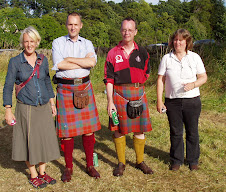I couldn’t bear to put the Grandson Sweater down, so near the neck shaping. I should reach it tomorrow, maybe even today. And just as well, because now I have read your comments and will find a crochet hook and do a provisional cast-on when I do take that day off and start the hat.
I am listening to Neil MacGregor’s first programme, about a mummy. I include the link because I spent quite a while wandering about in confusion on the fancy BBC website before I found an actual Listen Now button. Presumably you can Listen Now anywhere in the world.
I wonder if he will touch on a fact that amazes me, the way high civilisation starts at the same split second (in evolutionary terms) four or five thousand years ago, in Egypt and Greece and Israel and Persia and India and China: great cities, literature and art. I rate the Americas and sub-saharan Africa a bit lower, for not having literature, but they were making and building wonderful things in those places, too.
Some of this can be explained by people influencing each other, some by world-wide advances in agriculture which made it possible to live in cities. But the simultaneous-ness still seems remarkable.
My other big question is, why don’t we all speak the same language? We all started out in East Africa, and the evolutionary changes that permit speech – the development of the brain, and of the tongue and jaw and vocal cords – are so many and varied that they must have taken a long time. And the evolutionary advantages of speech – which, as I understand the system, mean that good talkers tend to get their genes passed on – only work in a community. It’s no use shouting, The baddies are coming! if there is no one to hear and understand you.
So once all that was in place, and we had made our hand axes and were ready to start spreading over the world, we must have had some sort of language, and I would expect us to have it still, in the sense that all the Indo-European languages from English through Hebrew to Sanskrit, can be shown to have common roots. But it is not so. Finnish and Chinese, to name but two, are utterly, fundamentally different.
It is amusing to reflect, as one watches people walking about the streets with their little telephones, how very important talking is, to the human animal. Many mammals – most, I should guess – are sociable, and we humans express that quality by constantly talking to each other.
Unless Neil MacGregor develops an interest in knitting, it is going to be hard to listen to him and at the same time keep this blog on track.
Blogger offered me a comment for moderation just now, in Russian. I rejected it, but in one ense it would have fitted in nicely with today's topics.
Subscribe to:
Post Comments (Atom)



I was listening yesterday to an interview with acoustic biologist Katy Payne who discovered how whale songs change and how elephants communicate over long distances and began wondering about human speech as well. Thanks for the link to the BBC, I couldn't find it either, and ran out of patience.
ReplyDeleteHuman language has always fascinated me. One interesting thing is that words for "mother" and "father" maintain similar forms throughout both Indo-European, Sino-Tibetan, and at least some African languages (possibly other groups, too?). Not surprising, I suppose, considering that recognition of one's parents is very primal.
ReplyDeleteAs for the multicentric development of advanced societies, I expect that had as much to do with populations reaching a critical mass to sustain them as anything else. Since successful human migrations would have also required a critical mass of individuals to make them successful and divergent migrations likely happened within a relatively short timespan, it makes sense that you'd see several populations reaching that point at around the same time.
And then take a look at the variations within languages - English within England is just a beginning.
ReplyDeleteMy job involves working with different languages and language variations all the time. Language is what makes us human and it is totally and utterly fascinating.
All very interesting, particularly to me and my DIL Susan here in Seattle. 9 month old baby Ethan is making all sorts of lovely chatty noises and we are sure he is trying to articulate a very definite sequence of thought.
ReplyDelete